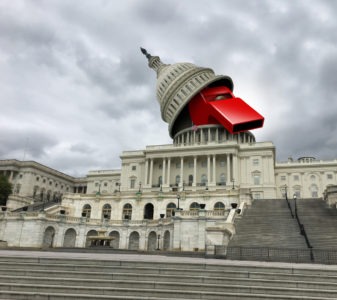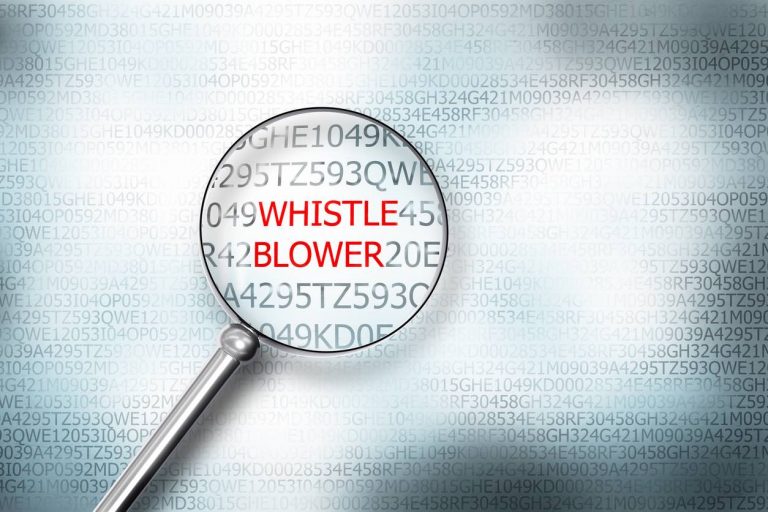Materiality and the False Claims Act
 The False Claims Act (FCA) defines “material” as “having a natural tendency to influence, or be capable of influencing, the payment or receipt of money or property.” 31 U.S.C. § 3729(b)(4). In United States ex rel. Escobar v. Universal Health Servs., Inc., the Supreme Court held that FCA liability can attach for violating statutory or regulatory requirements, whether or not those requirements were designated in the statute or regulation as conditions of payment.
The False Claims Act (FCA) defines “material” as “having a natural tendency to influence, or be capable of influencing, the payment or receipt of money or property.” 31 U.S.C. § 3729(b)(4). In United States ex rel. Escobar v. Universal Health Servs., Inc., the Supreme Court held that FCA liability can attach for violating statutory or regulatory requirements, whether or not those requirements were designated in the statute or regulation as conditions of payment.
In particular, the Escobar Court held that “liability can attach when the defendant submits a claim for payment that makes specific representations about the goods or services provided, but knowingly fails to disclose the defendant’s noncompliance with a statutory, regulatory or contractual requirement. In these circumstances, liability may attach if the omission renders those representations misleading.” 136 S. Ct. 1989, 1995 (2016). A Fifth Circuit decision summarizes the core holding of Escobar:
A violation is material if a reasonable person “would attach importance to [it] in determining his choice of action in the transaction” or “if the defendant knew or had reason to know that the recipient of the representation attaches importance to the specific matter `in determining his choice of action,’ even though a reasonable person would not.”
United States ex rel. Lemon v. Nurses To Go, Inc., 924 F.3d 155, 163 (5th Cir. 2019) (quoting Escobar I, 136 S. Ct. at 2002-03 (alteration in original) (quoting Restatement (Second) of Torts § 538 (1976))).
In Escobar, the Court articulated the following factors governing the materiality analysis, with no one factor being necessarily dispositive:
- whether compliance with a statute is a condition of payment;
- whether the violation goes to “the essence of the bargain” or is “minor or insubstantial”;
- whether the government consistently pays or refuses to pay claims when it has knowledge of similar violations; and
- whether the government would likely refuse payment had it known of the regulatory violations.
 As Escobar addresses only an implied certification theory, Escobar’s materiality requirement should not extend to all types of FCA claims. For example, an express misrepresentation, e.g., a health insurer expressly agreeing to comply with Medicare rules and regulations when it does not, would violate the FCA. See, e.g., U.S. ex rel. McCarthy v. Marathon Techs., Inc., No. 11 C 7071, 2014 WL 4924445 (N.D. Ill. Sept. 30, 2014).
As Escobar addresses only an implied certification theory, Escobar’s materiality requirement should not extend to all types of FCA claims. For example, an express misrepresentation, e.g., a health insurer expressly agreeing to comply with Medicare rules and regulations when it does not, would violate the FCA. See, e.g., U.S. ex rel. McCarthy v. Marathon Techs., Inc., No. 11 C 7071, 2014 WL 4924445 (N.D. Ill. Sept. 30, 2014).Examples of Material False Claims
Examples of material false claims include:
- A drug company Seeking and obtaining payment for off-label uses of certain drugs. See U.S. ex rel. Brown v. Celgene Corp., 226 F. Supp. 3d 1032 (C.D. Cal. 2016).
- A private security company submitting false weapons qualifications for the services of protective services personnel who had not fulfilled the required weapons training. United States ex rel. Beauchamp v. Academi Training Center, Inc., 220 F. Supp. 3d 676 (E.D. Va. 2016).
- Submitting a false hospice certification. See, e.g., Druding v. Care Alternatives, Inc., 164 F. Supp. 3d 621, 629 (D.N.J. 2016); United States ex rel. Fowler v. Evercare Hospice, Inc., No. 11-CV-00642-PAB-NYW, 2015 WL 5568614, at *7 (D. Colo. Sept. 21, 2015) (“the requirement that physicians’ certifications are accompanied by clinical information and other documentation that support a patient’s prognosis is a condition of payment under applicable Medicare statutes and regulations.”); see also, e.g., United States ex rel. Hinkle v. Caris Healthcare, L.P., No. 3:14-CV-212-TAV-HBG, 2017 WL 3670652, at *9 (E.D. Tenn. May 30, 2017) (“the government’s complaint alleges that defendants’ written certifications were false, in that the documentation for certain patients did not support a prognosis of terminal illness.”).
- A contractor engaged to provide security for Al Asad Airbase in Iraq violated the FCA by falsifying certifications of marksmanship and knowingly billing the Government the full contract price for guards who failed to meet the contractually specified marksmanship qualification. United States v. Triple Canopy, Inc., 857 F.3d 174, 177 (4th Cir. 2017). The court held that such misrepresentations were material because the Government’s decision to pay “would be influenced by knowledge that the guards could not … shoot straight.” Id. at 176.
The federal government’s payment of a claim after it learns of untruthful certifications or attestations about compliance with regulatory or contractual duties is not a shield from liability. See Campie v. Gilead Sciences, Inc., 862 F.3d 890, 906 (9th Cir. 2017).
False Claims Act Qui Tam Whistleblower Lawyers

Recently Washingtonian magazine named two of our attorneys top whistleblower lawyers. U.S. News and Best Lawyers® have named Zuckerman Law a Tier 1 Law Firm in the Washington D.C. metropolitan area.
To schedule a free consultation, click here or call us at 202-262-8959.









